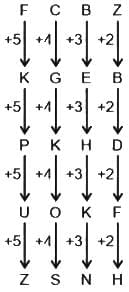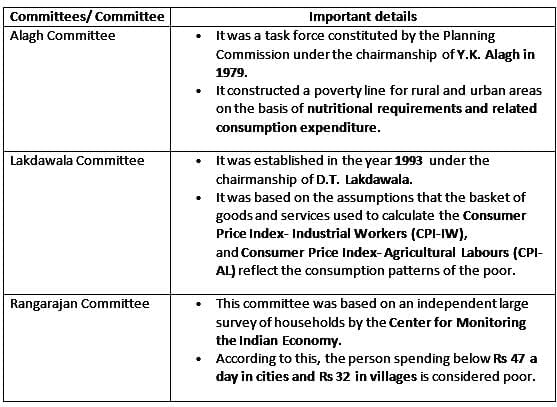MPTET Exam > MPTET Tests > MPTET Varg 1 Political Science Mock Test - 3 - MPTET MCQ
MPTET Varg 1 Political Science Mock Test - 3 - MPTET MCQ
Test Description
30 Questions MCQ Test - MPTET Varg 1 Political Science Mock Test - 3
MPTET Varg 1 Political Science Mock Test - 3 for MPTET 2025 is part of MPTET preparation. The MPTET Varg 1 Political Science Mock Test - 3 questions and answers have been prepared
according to the MPTET exam syllabus.The MPTET Varg 1 Political Science Mock Test - 3 MCQs are made for MPTET 2025 Exam.
Find important definitions, questions, notes, meanings, examples, exercises, MCQs and online tests for MPTET Varg 1 Political Science Mock Test - 3 below.
Solutions of MPTET Varg 1 Political Science Mock Test - 3 questions in English are available as part of our course for MPTET & MPTET Varg 1 Political Science Mock Test - 3 solutions in
Hindi for MPTET course.
Download more important topics, notes, lectures and mock test series for MPTET Exam by signing up for free. Attempt MPTET Varg 1 Political Science Mock Test - 3 | 150 questions in 150 minutes | Mock test for MPTET preparation | Free important questions MCQ to study for MPTET Exam | Download free PDF with solutions
MPTET Varg 1 Political Science Mock Test - 3 - Question 1
दिए गए विकल्पों में बहुवचन शब्द की पहचान कीजिए :
Detailed Solution for MPTET Varg 1 Political Science Mock Test - 3 - Question 1
MPTET Varg 1 Political Science Mock Test - 3 - Question 2
"लक्ष्मी + छाया" का संधि-पद निम्नलिखित में से किस संधि का सही उदाहरण होगा?
Detailed Solution for MPTET Varg 1 Political Science Mock Test - 3 - Question 2
MPTET Varg 1 Political Science Mock Test - 3 - Question 3
Direction: Choose the word which is most nearly SIMILAR in meaning as the word printed in underline.
She suddenly felt old and weary.
She suddenly felt old and weary.
Detailed Solution for MPTET Varg 1 Political Science Mock Test - 3 - Question 3
MPTET Varg 1 Political Science Mock Test - 3 - Question 4
Choose the correct word substitute for the following sentence:
One who collects coins as a hobby.
Detailed Solution for MPTET Varg 1 Political Science Mock Test - 3 - Question 4
Detailed Solution for MPTET Varg 1 Political Science Mock Test - 3 - Question 5
MPTET Varg 1 Political Science Mock Test - 3 - Question 6
Which letter-cluster will replace the question mark (?) to complete the given series?
FCBZ, KGEB, ?, UOKF, ZSNH
Detailed Solution for MPTET Varg 1 Political Science Mock Test - 3 - Question 6
MPTET Varg 1 Political Science Mock Test - 3 - Question 7
Which statement is false regarding the achievement test?
Detailed Solution for MPTET Varg 1 Political Science Mock Test - 3 - Question 7
MPTET Varg 1 Political Science Mock Test - 3 - Question 8
According to contemporary polices of Education, which of the following is the most suggested model of schooling for children with disabilities?
Detailed Solution for MPTET Varg 1 Political Science Mock Test - 3 - Question 8
MPTET Varg 1 Political Science Mock Test - 3 - Question 9
Which type of memory is also called as 'inactive memory?
Detailed Solution for MPTET Varg 1 Political Science Mock Test - 3 - Question 9
MPTET Varg 1 Political Science Mock Test - 3 - Question 10
Social justice is the balance between-
Detailed Solution for MPTET Varg 1 Political Science Mock Test - 3 - Question 10
MPTET Varg 1 Political Science Mock Test - 3 - Question 11
Which one of the following is the feature of the Constituent Assembly?
Detailed Solution for MPTET Varg 1 Political Science Mock Test - 3 - Question 11
MPTET Varg 1 Political Science Mock Test - 3 - Question 12
What is Kautilya's Mandal Theory related to?
Detailed Solution for MPTET Varg 1 Political Science Mock Test - 3 - Question 12
MPTET Varg 1 Political Science Mock Test - 3 - Question 13
Among the following, who is related to the Traditional Perspective of Political Theory?
Detailed Solution for MPTET Varg 1 Political Science Mock Test - 3 - Question 13
MPTET Varg 1 Political Science Mock Test - 3 - Question 14
A special address by the Governor refers to the address delivered by the Governor
Detailed Solution for MPTET Varg 1 Political Science Mock Test - 3 - Question 14
MPTET Varg 1 Political Science Mock Test - 3 - Question 15
Where is the headquarter of United Nations Organisation is situated?
Detailed Solution for MPTET Varg 1 Political Science Mock Test - 3 - Question 15
MPTET Varg 1 Political Science Mock Test - 3 - Question 16
"All within the State, none outside the State, none against the State". This statement points to a
Detailed Solution for MPTET Varg 1 Political Science Mock Test - 3 - Question 16
MPTET Varg 1 Political Science Mock Test - 3 - Question 17
A motion of no-confidence is moved against
Detailed Solution for MPTET Varg 1 Political Science Mock Test - 3 - Question 17
MPTET Varg 1 Political Science Mock Test - 3 - Question 18
Which one of the following best defines the term ‘State’?
Detailed Solution for MPTET Varg 1 Political Science Mock Test - 3 - Question 18
MPTET Varg 1 Political Science Mock Test - 3 - Question 19
Who among the following is included in the Presidential election Board ?
Detailed Solution for MPTET Varg 1 Political Science Mock Test - 3 - Question 19
MPTET Varg 1 Political Science Mock Test - 3 - Question 20
The first Non - Congress Prime Minister of India was :
Detailed Solution for MPTET Varg 1 Political Science Mock Test - 3 - Question 20
MPTET Varg 1 Political Science Mock Test - 3 - Question 21
Which is NOT correct about the High Court?
Detailed Solution for MPTET Varg 1 Political Science Mock Test - 3 - Question 21
MPTET Varg 1 Political Science Mock Test - 3 - Question 22
In a parliamentary system. to whom the executive is responsible?
Detailed Solution for MPTET Varg 1 Political Science Mock Test - 3 - Question 22
MPTET Varg 1 Political Science Mock Test - 3 - Question 23
The Proclamation of National Emergency by the President under Article 352 cannot be done on which of the following grounds?
Detailed Solution for MPTET Varg 1 Political Science Mock Test - 3 - Question 23
MPTET Varg 1 Political Science Mock Test - 3 - Question 24
Who has the authority to increase the number of judges in the Supreme Court of India?
Detailed Solution for MPTET Varg 1 Political Science Mock Test - 3 - Question 24
MPTET Varg 1 Political Science Mock Test - 3 - Question 25
The State Council is collectively responsible -
Detailed Solution for MPTET Varg 1 Political Science Mock Test - 3 - Question 25
MPTET Varg 1 Political Science Mock Test - 3 - Question 26
Punchi Commission on Centre-State Relations was constituted in the year ________.
Detailed Solution for MPTET Varg 1 Political Science Mock Test - 3 - Question 26
MPTET Varg 1 Political Science Mock Test - 3 - Question 27
Which of the following commission/committee is not a committee for poverty estimation in India?
Detailed Solution for MPTET Varg 1 Political Science Mock Test - 3 - Question 27
MPTET Varg 1 Political Science Mock Test - 3 - Question 28
RBI has signed a Currency Swap Agreement with the Monetary Authority of which country under the SAARC Currency Swap Framework?
Detailed Solution for MPTET Varg 1 Political Science Mock Test - 3 - Question 28
Detailed Solution for MPTET Varg 1 Political Science Mock Test - 3 - Question 29
MPTET Varg 1 Political Science Mock Test - 3 - Question 30
Which of the following Lokpal Bill also had Prime Minister under its Jurisdiction?
Detailed Solution for MPTET Varg 1 Political Science Mock Test - 3 - Question 30
View more questions
Information about MPTET Varg 1 Political Science Mock Test - 3 Page
In this test you can find the Exam questions for MPTET Varg 1 Political Science Mock Test - 3 solved & explained in the simplest way possible.
Besides giving Questions and answers for MPTET Varg 1 Political Science Mock Test - 3, EduRev gives you an ample number of Online tests for practice
Download as PDF























